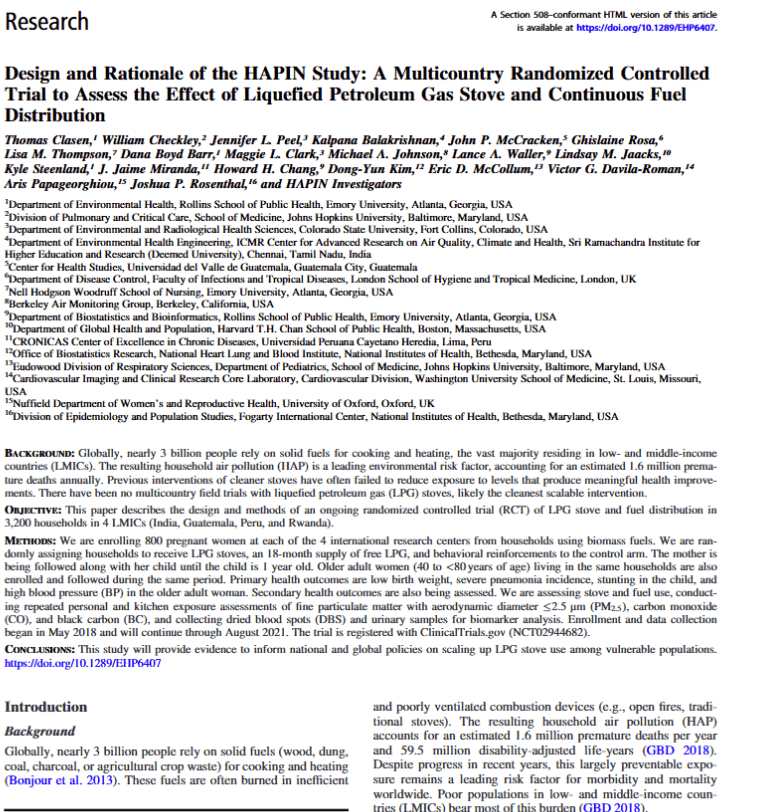Design and Rationale of the HAPIN Study: A Multicountry Randomized Controlled Trial to Assess the Effect of Liquefied Petroleum Gas Stove and Continuous Fuel Distribution
 |
article Apr 2020 ; 11 pages
Aut. Thomas F. Clasen & William Checkley & Jennifer L. Peel & Kalpana Balakrishnan
Ed. Environmental Health Perspective -
Téléchargeable sous format: PdF
Téléchargeable chez l'éditeur
Abstract:
We are enrolling 800 pregnant women at each of the 4 international research centers from households using biomass fuels. We are randomly assigning households to receive LPG stoves, an 18-month supply of free LPG, and behavioral reinforcements to the control arm. The mother is being followed along with her child until the child is 1 year old. Older adult women (40 to <80 years of age) living in the same households are also enrolled and followed during the same period. Primary health outcomes are low birth weight, severe pneumonia incidence, stunting in the child, and high blood pressure (BP) in the older adult woman. Secondary health outcomes are also being assessed. We are assessing stove and fuel use, conducting repeated personal and kitchen exposure assessments of fine particulate matter with aerodynamic diameter ≤2.5μm (PM2.5), carbon monoxide (CO), and black carbon (BC), and collecting dried blood spots (DBS) and urinary samples for biomarker analysis. Enrollment and data collection began in May 2018 and will continue through August 2021. The trial is registered with ClinicalTrials.gov (NCT02944682).
Public-Cible:
Mot clef: |
Pays concernés: |
Guatemala (CI) (DT) (OP) , Inde (CI) (DT) (OP) , Pérou (CI) (DT) (OP) , Rwanda (CI) (DT) (OP) |
Editeur/Diffuseur: |
|
Environmental Health Perspective - - Etats Unis |
En cas de lien brisé, nous le mentionner à communication@pseau.org